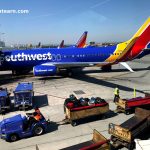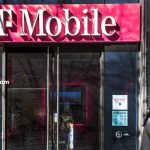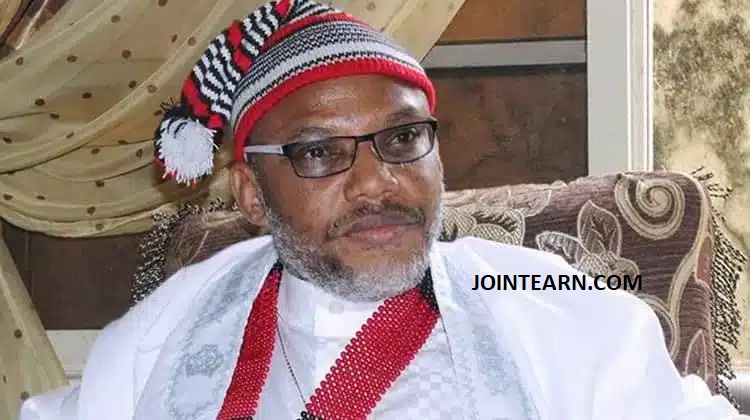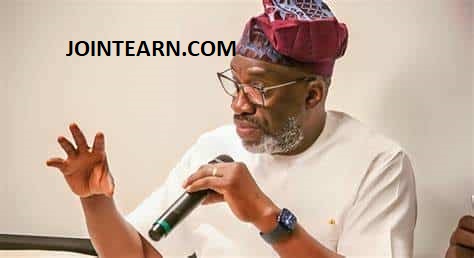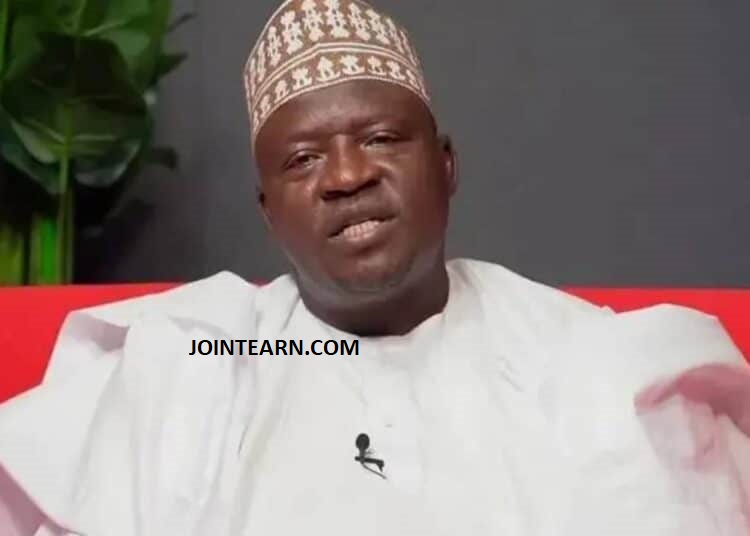Detained leader of the Indigenous People of Biafra (IPOB), Mazi Nnamdi Kanu, has called on the European Union (EU) and the United States government to launch an independent and impartial investigation into the growing insecurity in Nigeria’s South-East region. In a message relayed through his legal team, Kanu alleged that the crisis in the region has been misrepresented and manipulated for political ends, demanding an international fact-finding mission to uncover the truth.
The South-East has witnessed a disturbing escalation in violence over the past three years, marked by targeted killings, abductions, arson attacks, and violent clashes between security forces and armed groups. Amid rising tension, government authorities have repeatedly blamed the violence on IPOB and its militant wing, the Eastern Security Network (ESN), accusations which the group has continued to deny.
Kanu Denies IPOB’s Role in Insecurity
According to his counsel, Ifeanyi Ejiofor, who spoke to reporters following a court session in Abuja, Kanu insists that IPOB is not responsible for the wave of violence in the region. Rather, he alleges that certain elements within the Nigerian security structure and political class are behind a coordinated campaign to blackmail the movement and suppress legitimate agitation for self-determination.
“My client has consistently maintained that IPOB remains a peaceful organization. He has called on the international community, particularly the EU and the US, to conduct an independent investigation into the killings and unrest in the South-East. We are calling for transparency and truth,” Ejiofor said.
He added that Kanu believes only an impartial international inquiry can uncover the identities and motives of those fueling violence in the region, which has claimed hundreds of lives and displaced many residents.
International Community Must Intervene – Kanu
In a letter addressed to representatives of the European Union and the US Embassy in Nigeria, Kanu’s legal team emphasized the urgency of international involvement, citing what they described as “deliberate misinformation” and “a campaign of state-sponsored violence” in the South-East.
“It is imperative that international observers understand what is truly going on in the South-East. Without an objective investigation, there will continue to be bloodshed, wrongful accusations, and a gross misrepresentation of IPOB’s true intentions,” the letter read.
Kanu also appealed to human rights organizations such as Amnesty International and Human Rights Watch to closely monitor developments in the region and ensure that violations of civil liberties are properly documented and reported.
A Region Gripped by Fear
Communities in the South-East continue to live under the constant fear of violence, with many residents caught in the crossfire between state forces and unidentified gunmen. In several states including Imo, Anambra, and Ebonyi, there have been reports of extrajudicial killings, nighttime raids, and arbitrary arrests.
While security agencies blame the unrest on IPOB’s secessionist campaign, residents and civil society groups say the situation is more complex, pointing to the involvement of criminal gangs, political thugs, and opportunistic militants who have taken advantage of the instability.
Activists in the region have echoed Kanu’s call for an independent investigation, stating that the security situation is worsening, and the official narrative does not reflect the lived realities of ordinary people.
Government Maintains IPOB Is Responsible
Despite the calls for an impartial inquiry, the Nigerian government maintains that IPOB and the ESN remain primary threats to peace and security in the South-East. Authorities have consistently linked the group to attacks on police stations, INEC offices, and government buildings, even as IPOB denies involvement.
Minister of Information, Mohammed Idris, recently restated the government’s position during a press briefing in Abuja. “We have overwhelming evidence linking IPOB and ESN to acts of terrorism in the South-East. No responsible government would fold its arms in the face of such threats,” he said.
Security analysts, however, argue that the government’s approach has lacked nuance, often conflating political agitation with violent criminality and failing to address the root causes of the unrest.
Legal Battles and Continued Detention
Nnamdi Kanu has been in the custody of Nigeria’s Department of State Services (DSS) since June 2021, after he was arrested in Kenya and extradited under controversial circumstances. He faces charges of terrorism and treasonable felony, charges he and his supporters claim are politically motivated.
Despite several court rulings ordering his release, including a 2022 judgment by the Court of Appeal, the Nigerian government has refused to free him, citing national security concerns and pending legal appeals.
His prolonged detention has drawn criticism from both local and international rights groups, who argue that the federal government is violating due process and worsening tensions in the South-East.
Dialogue, Not Force – Kanu’s Message
In his latest message, Kanu reiterated that his vision for the South-East is one of peaceful self-determination, not conflict or violence. He called on the Nigerian government to abandon its use of force and embrace dialogue as a path toward lasting peace.
“The path to peace is through justice, not bullets. The ongoing militarization of the South-East is not a solution. It only deepens the wounds and inflames the situation. Let there be truth, accountability, and dialogue,” Kanu said, according to his lawyer.
Conclusion
As insecurity persists in Nigeria’s South-East, Nnamdi Kanu’s call for international intervention has added a new dimension to the unfolding crisis. While government officials remain firm in their stance against IPOB, the growing appeal for transparency, accountability, and dialogue from both local voices and international observers is unlikely to fade.
Whether the EU, United States, or any global body will heed Kanu’s call remains to be seen. For now, the people of the South-East continue to wait, caught between a government crackdown and an uncertain future.






